
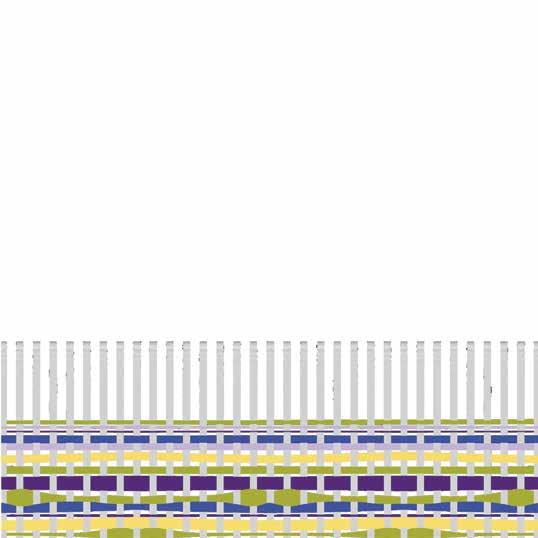





“Learning is not an individual act but happens in relationship Early Learning Framework with people, materials, and place.”

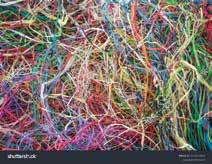
Each of us is like a thread… we have particular strengths, unique qualities, and experiences. Alone we are but a single strand—a single point of view, a single idea—but when we join with others, we create something of exponentially greater value and meaning.
The visual motif and metaphor chosen for this report is Woven Together. Weaving, braiding, knitting, and textile making are ancient, cross-cultural practices for many Indigenous peoples. For generations we have literally woven our stories into fabric and other textiles.


This report describes the outcomes of Phase 2 of the ECE Professional Development Bursary Fund Program (Bursary Fund), showcasing statistical data and compelling narratives that illustrate the impact of providing financial support for early childhood professionals in British Columbia. The Bursary Fund, an initiative of the Ministry of Education and Child Care in partnership with the Government of Canada and the Westcoast Family Centres Society, aims to support recruitment and retention in the early learning and child care sector. Since its inception in 2019, the Bursary Fund has focused on the following objectives:
Improving access to professional development for early childhood professionals, particularly Indigenous populations and those living and working in rural or remote communities in British Columbia
Building capacity in the early learning and child care field by reducing financial barriers for early childhood professionals to access high-quality training opportunities
Through strategic financial support, the Bursary Fund improved access to ongoing training for early childhood professionals. Building on the success of Phase 1 (2019 – 2021), in Phase 2, the Bursary Fund worked with provincial and regional agencies, as well as Indigenous organizations and communities, to support professional development for 10,831 early childhood professionals in 39 locations throughout British Columbia.
The collaborative efforts between Bursary Fund consultants and applicants, guided by the principles of the Early Learning Framework, have not only reduced financial barriers but also fostered a culture of shared learning and growth. Early in Phase 2, a bursary applicant posed a pivotal question to Bursary Fund consultants:
“How do we invite the Early Learning Framework to guide and inform our work?” This applicant highlighted that the Early Learning Framework is designed for a wide spectrum of professionals in the early learning and care sector, including researchers and governments (Early Learning Framework 6). This discussion led to further questions about how the principles of the Early Learning Framework might influence the values, processes, and procedures of the Bursary Fund:
How do we consider different perspectives? (12)
How do we engage with the complexities of practice in a spirit of experimentation, being open to new ways of thinking and doing? (13)
How do we go beyond the usual practices to create something different and “tell different stories of knowing and being? (13)
This early discussion in Phase 2 was a significant catalyst for influencing how Bursary Fund consultants worked with applicants, reviewed their applications, and gathered data to comprehensively understand the Bursary Fund’s impact. With the principles of the Early Learning Framework in mind, the Bursary Fund consultants aimed to minimize the administrative load for applicants by fine-tuning application requirements, identifying supplementary resources, and connecting applicants with community partners when needed. This approach reinforced intentional collaborative planning throughout the application process. Bursary Fund consultants worked with applicants to cocreate plans and budgets, making adjustments as necessary. Staff customized evaluation and reporting procedures to gain the most meaningful insights from participants, and these insights were shared between applicants and staff to inform potential future plans (Figure 1).

Attaching a dollar amount to the statement that our society values educators for their work is a tangible expression of what this really means. And there is messaging that comes along with that, and it is very, very powerful messaging. We were able to share all the details of the (community of practice) retreat with our participants. When the child care providers heard that the retreat was paid for, they were all crying. They are so grateful. When you have educators crying in your office because they don’t know how they are going to do it again tomorrow, to be able to say, ‘I’ve got you, come and rest with us in this and come and celebrate’ – to be able to give them this gift of saying ‘thank you for showing up every day’ – I’m so grateful, and so are they. Community of Practice Organizer


The data collected from reports and discussions with training organizers strongly indicate ongoing financial support is a powerful expression of society’s value for early childhood professionals in British Columbia. Public funding does more than just assist early childhood professionals economically; it signifies an explicit validation of the crucial role these professionals play in enhancing the quality of life for children, families, and society. This validation is expressed in the following comments from training event organizers and Bursary Fund recipients.
The Bursary support makes me feel that the early years and children are being seen.
Conference Participant
I feel valued. I do not have to sacrifice my well-being and livelihood to build on my practice. Often as ECEs – we have to sacrifice parts of ourselves. I am very low on funds and any chance to save money is quite helpful.
Conference Participant
The reduced rate helped me to feel appreciated and that ECE teachers Matter! Thank you!
Conference Participant
During Phase 2, the Bursary Fund provided financial support for 10,831 individuals, which made it possible for early childhood professionals to engage in a broader range of subjects and interact with a diverse group of their peers. The following testimonials illuminate the vital importance of financial support in enhancing accessibility for professional development, particularly for new early childhood professionals.
Having a reduced registration fee opens up an opportunity for me to attend the conference. I am new to the field, and it’s a great learning experience.
Conference Participant
The Bursary made it so that we were surrounded by more ECEs from farther away, from more varied backgrounds.
Conference Participant
The Bursary funding allows many more educators who may otherwise not have the financial means to engage in professional learning. This participation brings broader and diverse perspectives to our collective conversation.
Conference Organizer
I noticed new relationships being formed. New ECEs and child care providers were connected with experienced people in the field. People who would not have had the opportunity to chat in an online workshop connected and formed new professional relationships
Conference Organizer
Indigenous people and people living in rural and remote communities supported by the Bursary Fund
Indigenous Population
Bursary funding helps to support the participation of more Elders at the conference. In the past, the few Elders present faced immense pressure to assist a growing number of attendees. With additional funding, we can invite more Elders to the conference, ensuring they are available to support delegates when needed.
Conference Organizer
Rural and Remote Populations
Increased Reach Since Phase 1
Early childhood professionals living in rural and remote regions of British Columbia face significant barriers to attending in-person training events, such as conferences or full-day workshops. They often need to take time off from work and travel several hours to attend these events. The Bursary Fund provided financial assistance for transportation, significantly motivating participants to attend in-person training events. The support from the Bursary Fund fostered opportunities for in-person engagement and connection, conditions sometimes missing in virtual settings. The travel challenges,
The number of people supported by the Bursary Fund
YEAR 1 468 (JAN 22 – MAR 31, 2022)
YEAR 2 4,855 (APR 1, 2022 – MAR 31, 2023)
YEAR 3 5,508 (APR 1, 2023 – MAR 31, 2024)
TOTAL UPTAKE 10,831 (JAN 22, 2022 – MAR 31, 2024) What types of professional development do bursary recipients attend?
7,727 ATTENDED CONFERENCES
2,432 ATTENDED WORKSHOPS
672
PARTICIPATED IN COMMUNITIES OF PRACTICE
3,396
BURSARY UPTAKE PHASE 1 (2019 – 2021)
10,831
BURSARY UPTAKE PHASE 2 (2022 – 2024)


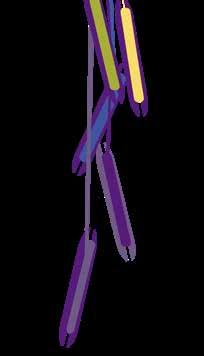
Without the active engagement of early childhood professionals from rural, isolated, and distinct communities, we miss out on the diversity, richness and strength of their experiences, ideas, and knowledge.
We are stronger as a profession when these voices are heard.
Living on the Northwest Coast of B.C. is challenging at times. New professional development opportunities can be difficult to find. Living in a rural area makes it even more difficult because resources are limited, and travel is incredibly expensive. I am appreciative and thankful for being able to attend.
Workshop Participant

along with the essential assistance provided by the Bursary Fund, are illustrated in the following comments:
I needed to drive ten hours, and I wouldn’t be able to come otherwise, but the Bursary made it more affordable.
Conference Participant
Due to where I live, access to conferences such as this is prohibitive due to the cost, and I generally take much of my professional development online. While I appreciate the virtual accessibility options, which are becoming frequent, the chance to engage in-person is very meaningful! There is so much more that is possible in an in-person event such as this, which gets lost in translation over a virtual mode of engagement.
Conference Participant
I believe the Bursary funding influenced the success of this workshop by enabling us to offer a big workshop event at no cost to participants. With the cost barrier gone, it encouraged care providers to come out and enjoy the topic and make connections. Transportation expenses covered for those that were remote were well received; this really helped with the hour-long drive some had each way.
Training Organizerr
ECE (Early Childhood Educator)
ECEA (Early Childhood Education Assistant)
School Age Child Care
Licensed Care Providers
Registered License Not Required
Responsible Adult
Head Start, Strong Start, Supported Child Development, Preschool Teachers
What are the locations of agencies that received Bursary funds?
During Phase 1 (2019 – 2021), agencies were situated in 21 locations throughout British
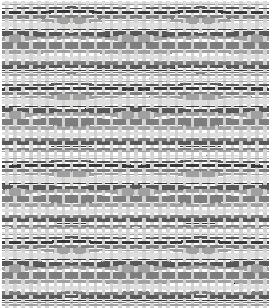
Golden
Haida Gwaii Kelowna
Nanaimo
Nelson
Penticton
Prince George
Prince Rupert
Revelstoke
Richmond
Salmon Arm
Surrey
Trail
Vancouver
Vernon
Victoria
Williams Lake
Additional Locations of Training Phase 2 (2022 - 2024)
Abbotsford
Bella Coola Campbell River Chilliwack Comox
Courtenay
Cranbrook
Grand Forks
Mackenzie
Maple Ridge
Mission
New Ayainsh
Parksville
Port Alberni

Langley
Qualicum Beach Sooke Tansi Terrace
Bursary funding was allocated across three streams: conferences, workshops, and communities of practice. In addition to the most prominent topics, the remaining 23% of the training content covered a diverse range of subjects such as ethical practices, professionalism, traumainformed practice, literacy, and infant–toddler care.
INDIGENOUS PERSPECTIVES OR TRUTH AND RECONCILIATION
INCLUSION
REFLECTIVE PRACTICE
MENTAL
ADMINISTRATION
EVENT COORDINATOR
SPEAKERS/ FACILITATORS
CATERING
VENUE
LEARNING RESOURCES
PARTICIPANT TRAVEL
PARTICIPANT ACCOMMODATIONS HONARIUM
AV/TECHNICAL SUPPORT


Cultivating strong relationships within communities of practice is an effective strategy for enhancing capacity in the early learning and child care field. Professional development through communities of practice fosters deep, vulnerable conversations that reflect the principles of the Early Learning Framework. Communities of practice create spaces where early childhood professionals can explore their identities, challenge preconceived notions, and grow both personally and professionally. The quotes on the following pages vividly illustrate how these interpersonal connections inspire profound shifts in understanding and practice, emphasizing that the strength of these communities lies in their ability to engage participants in thoughtful, impactful dialogues. The Early Learning Framework’s vision for “thoughtful considerations” (12) and “exploration of one’s identity” (14) comes to life through the shared experiences and reflections of these dedicated professionals.
“Learning requires exploration of one’s identity” (Early Learning Framework 14)
I think so much of the conversations that we’re having, it’s like just reminding you how to be human on a whole other level . . . and what’s more—being in relationship, being a human, and experiencing human life.
Community of Practice Leader
And I feel like we have all learned in such a deep way because we’re not just talking about one layer . . . we get into talking about systemic pieces, we get talking about our own work practice, we get into talking about ourselves as human beings.
Community of Practice Leader
I often still feel (on the inside) like a ‘green’ inexperienced educator—that what I say floats into the air like vapour. Through conversation, dialogue, and networking, I hope I can start to accept and see myself the ways others apparently see me.
Community of Practice Participant
“Relationships are the context for well-being and learning” (Early Learning Framework 15)
We see the magic in the room when they start sharing ideas and supporting each other.
Community of Practice Leader
Relationship is everything in this group—our relationship with [name removed] and our relationship with each other, our ability to say things that might not be right and be okay and taking that risk. I know that this group is where people can do that, and they might not be doing that in other places in their lives or careers or their families. I think the relationship is what holds us all together in this journey.
Community of Practice Leader
That’s what community of practice is like; it is just having those conversations and getting real . . . yeah, I almost find that more powerful in relationship.
Community of Practice Leader
. . . just walking alongside, not rushing . . . not rushing to find answers, not rushing to get through this walk to find the way from A to B, but to just meander. Having that kind of relationship and seeing how that gives birth to new discussions because then when you’re not rushing, then you’re having these beautiful discussions.
Community of Practice Leader

“Engaging with complexity means accommodating many ways of thinking, seeing, doing, and knowing as well as being” (Early Learning Framework 7)
Communities of practice provided early childhood professionals with spaces to engage in conversations that not only promoted new understandings but also encouraged disruptive learning. This process challenged participants to unlearn and relearn previously held beliefs, ideas, and values. These transformative conversations were especially prominent in communities of practice that explored the histories of Indigenous Peoples in Canada. They supported open and sometimes uncomfortable discussions about worldviews, values, and both historical and current narratives of Indigenous Peoples. These challenging dialogues guided shifts in understanding and prompted critical reflections on Canadian narratives.

. . . a personal piece of being part of the community of practice is about the journey of unlearning and relearning, the depth of what I don’t know is just so front and center for me . . . the group can support that process ‘unknownness’ of learning and relearning.
Community of Practice Leader
It’s really disrupting. For most of us, what we grew up knowing or believing or what we were taught … it’s realizing that what we were taught and what we know was not the truth or the truth wasn’t shared . . . we are slowly creating that safe space where people are being more open to talking about it.
Community of Practice Leader
We are having conversations that are pushing the envelope, and it is gonna get messy, and it is gonna get uncomfortable.
Community of Practice Leader
I think there’s a lot of hesitancy around talking about Truth and Reconciliation and where we are in our journeys because I think people are afraid to say something wrong . . . the last time we were together, people were a little bit more open to having the conversations and going a little deeper and being vulnerable.
Community of Practice Leader
“Learning is not an individual act but happens in relationship with people, materials, and place.”
(Early Learning Framework 65)
Bursary Fund consultants heard incredible stories about participants’ unwavering commitment to attending their community of practice sessions, even during extremely challenging and sometimes life-changing situations. This dedication was largely because of the meaningful relationships being cultivated and the trusted space where early childhood professionals could share their voices and thoughts with one another. Many participants viewed the community of practice as an integral part of their personal and professional well-being. Community of practice organizers also mentioned that early childhood professionals were more encouraged to keep working in the field because of the connection and support they experienced in the community of practice sessions.
This community of practice gave me so much reason to stay and to be willing to grow my career. A deep, experienced person in the child care industry puts together insights and strengthens why I need to be a part of this community of care. This community of practice made me very proud to be an ECE caregiver.
Community of Practice Participant
The community of practice is the best part of my job. You get busy with all the chaos, and this is something to look forward to—to connect with community.
Community of Practice Leader
This experience has shown me that care is the most important gift in life not only to offer to the children but to offer to one another and especially to ourselves.
Community of Practice Leader
Bursary funding has made a world of difference in building our community and keeping us connected and bringing us together. We would not, I think, have the connections and the friendships that have grown and the reduction in isolation if it wasn’t for this being available to us. I think it’s been an amazing experience to have this in the last two years.
Community of Practice Leader
In Year 3, numerous bursary-funded workshop series took place over several weeks or months. The feedback from workshop series organizers and participants suggests that professional learning over multiple sessions offers numerous benefits , including opportunities to test ideas, discuss challenges, and experience shifts in perceptions of the child and one’s own professional identity.
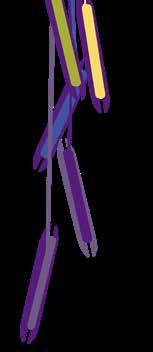

This workshop series has taught me that I have an identity, values, and am valuable in my program with families and the community.
Workshop Series Participant
This series has challenged my ideas/ image of the educator … I will be practicing a lot of self-reflection around our roles in our practice.
Workshop Series Participant
I have learned that I am confident, educated, knowledgeable, and capable; I am not ‘just’ a childcare provider.
Workshop Series Participant
After the conclusion of this workshop series, we had one of our local providers come to us and tell us that she was reluctantly about to turn a family away as she did not have the skills to help their son. She heard about our training series and decided to come to all of the workshops. She told us that with each workshop, she tried what she had learned and also taught the parents. She brought us all to tears with her story on how she learned to support not only this child but also his family without having to turn them away. She said, ‘I loved this program. It has helped me immensely and prevented me from terminating care to the child who needed me.
Workshop Organizer
The Bursary Fund decreased registration fees for early childhood professionals to attend conferences and workshops. Sixty-five percent of all conferences and workshops had a 90 – 100% participation rate. A particularly notable event occurred in Kelowna, British Columbia. Less than two weeks after a forest fire destroyed 190 structures and led to evacuation orders or alerts for more than 70,000 people, a Bursary-supported conference was held in Kelowna on August 29, 2023. Remarkably, 84 out of the 92 registrants attended this event. High participation rates suggest the lower costs for training motivate child care professionals to attend the events they register for, despite challenging circumstances.

Just two weeks after the 2023 Kelowna forest fire, 84 of 92 registrants attended the conference in that city
I think we could have better quality instructors with the Bursary. Even though we want specific workshops or instructors, sometimes we can’t invite them because of the cost.
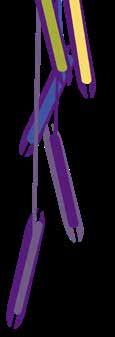
Workshop Organizer
The quality of what we would have been able to offer would not have been the same, and I believe this would have affected the amount of ‘repeat’ people who came to each session.
Workshop Organizer
We would not have been able to offer such a high-calibre keynote speaker or the supplies provided in the hands-on workshops without the support of the Bursary funding.
Workshop Organizer
I am very low on funds, and any chance to save money is quite helpful. I can be more present without the anxiety of a large chunk of money spent.
Conference Participant
65% of all conferences and workshops had a 90 – 100% participation rate
The reduced rates make it more economical to attend, and I think that always makes it inviting to choose workshops with a little bit more ease. You can learn about topics that are not strictly what you are looking to educate yourself on but actually broaden your horizons.
Conference Participant
When workshops are costly, you tend to pick only those you absolutely want to learn about to make sure your dollar is well spent. And when workshops are well priced, it adds to the motivation to join a workshop you haven’t considered before.
Workshop Participant
More staff from our team were able to attend, and this is the first time my employer paid for it.
Conference Participant
This helped allow my boss to have all of our educators attend with no charge to us individually.
Conference Participant
My company paid for many of us to attend because of the reduced fees. So we were able to gather and learn together.
Conference Participant
I could go with my teammates to learn about interesting topics as a team, and if we can go together, we can share more effectively and bring it to the children.
Conference Participant
I work as an ECE supervisor, and my team and I all attended the same workshop, so when I make reference to something that was presented at the conference, everyone knows what I am saying.
Conference Participant
This was nourishing and restorative; there was so much learning, and we brought so much back for our centre. We learned so much more about each other and our team, and we got to learn about the subjects together.
Conference Participant
The reduced fees allowed for teams to attend professional development together away from their centres. Having teams learning together allows for them to hear the same message to take back and work on this together. It also helps with relationship building with each other and as a team.
Conference Participant

The weavers and the beaders had never led a workshop before for grown-ups. It was cool to see their confidence build . . . then when it finally happened, it was just about being together, and stories that needed to be shared just happened. The facilitators got an opportunity to teach, and they didn’t know they could do that, so that was really amazing.
Workshop Organizer
Not only did staff benefit from this conference but as conference coordinator, the Bursary funds helped decrease the stress of how to provide a quality conference in a cost-conscious manner. This allowed me to be more present at the conference and create or deepen my relationships with child care staff, which is critical to my role.
Conference Organizer
Bursary Fund consultants worked with training organizers in agencies throughout British Columbia who advocated for and represented a wide spectrum of learning needs among early childhood professionals in their communities. One consideration that training organizers posed was the challenge of reconceptuali z ing what accountability looks like when reporting outcomes to the Bursary Fund. This tension between maintaining the integrity of the professional learning experience with participants and meeting the reporting metrics of the Bursary Fund is described by this organizer co-facilitating a community of practice about Truth and Reconciliation.
We’re talking about even decolonizing this process of being in a community of practice with funders who have requirements and still trying to follow the path that’s in front of us that doesn’t always fit into a report form of boxes and check marks—it doesn’t always have specific predetermined goals and timelines. We would really struggle to write you a really nice report with a bunch of met outcomes and completed check marks in it. So how can we recognize that the act of coming together, the act of committing to each other, the act of existing together is fully and by itself enough?
Community of Practice Organizer
In Phase 3 (April 2024 – March 2027), reporting requirements will focus on offering reflexive processes to respond to the dynamic structure and outcomes of each Bursary-funded event. This will also reinforce culturally respectful ways to support the distinct values of each community. The Bursary Fund’s application cycle emphasizes coconstructing and collaboratively reflecting on the professional learning experience. Collaborative planning and assessment will continue to be prioritized, especially with those organizing communities of practice. This approach will support an expansive vision of learning aligned with the Early Learning Framework, which emphasizes learning as “holistic, reflexive, reflective, experiential, and relational” (43).
The feedback highlights the significant benefits of participants meeting multiple times over several months to learn about and discuss concepts and develop understandings. Multiple sessions of learning promoted enhanced confidence, knowledge, and reflection, which empowered early childhood professionals to view themselves with an expansive, honouring perspective.
Feedback from Phase 1 (2019 – 2021) and Phase 2 (2022 – 2024) of the Bursary Fund indicates professional learning through communities of practice strongly influences deep reflective learning, promotes strong sector connections, and strengthens personal and professional identity. Communities of practice enhance relationships by cultivating strong, supportive environments where open dialogue, collaboration, and shared learning can thrive. Additionally, communities of practice help participants navigate complex topics and encourage continuous unlearning and relearning. Given these positive outcomes, it is recommended that Bursary funds are allocated to support professional learning that occurs over multiple sessions. These sessions, whether they be a workshop series, community of practice, or a combination of a conference with before-andafter community of practice sessions, support early childhood professionals in strengthening professional identity and bolstering a shared purpose.
The Phase 2 outcomes of the ECE Professional Development Bursary Fund Program highlight the transformative impact of financial support on early childhood professionals in British Columbia. The Bursary Fund has reduced financial barriers and increased access to professional development for 10,831 people.
The integration of the Early Learning Framework’s principles has been fundamental in shaping the Bursary Fund’s processes, emphasizing collaborative planning, reflective practices, and culturally respectful approaches. The Early Learning Framework has guided the Bursary Fund’s efforts to foster deep, meaningful professional development experiences that resonate with early childhood professionals’ needs and aspirations.
The data and testimonials presented in this report underscore the importance of continued financial support for professional development. The Bursary Fund has not only improved access to training but also helped strengthen the professional identity and capacity of early childhood professionals.
Looking ahead to Phase 3, the emphasis on reflexive, collaborative planning, and evaluation will remain a central tenet of the Bursary Fund’s implementation model. The Bursary Fund will continue to prioritize ongoing training that supports strong professional relationships while focusing on provincial and community-driven priorities. This approach aims to further empower early childhood professionals and elevate the quality of early child care and learning in British Columbia.
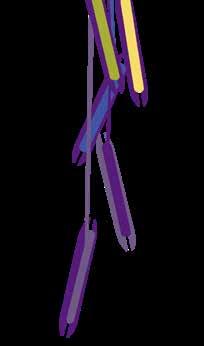
British Columbia Ministry of Education. British Columbia Early Learning Framework Government of British Columbia, 2019, www2. gov.bc.ca/assets/gov/education/earlylearning/teach/ earlylearning/early_learning_framework.pdf. Accessed 6 July 2024.

There is more to do, and there’s more stories to tell, and there’s more learning and unlearning to explore.
Community of Practice Organizer